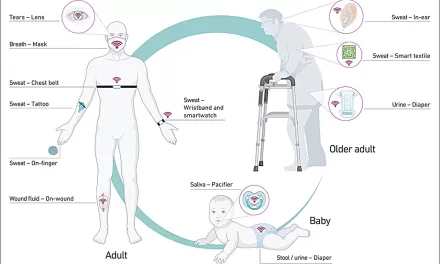Ann Arbor, MI — Food allergies affect millions of people globally, posing life-threatening risks and significantly impacting quality of life. However, a recent study from the University of Michigan could offer new hope to sufferers. Researchers have identified inulin, a naturally occurring plant fiber, as a potential treatment for food allergies. This discovery marks a significant step forward in allergy treatment, targeting the root cause rather than just managing symptoms.
The study, published in Nature Materials, details the successful use of inulin gel-based oral immunotherapy in preventing severe allergic reactions in mice. The research, led by James Moon from the U-M’s College of Pharmacy, demonstrated that the inulin gel effectively halted reactions to common allergens such as peanuts, egg whites, and milk. The gel works by targeting gut bacteria, preventing severe allergic responses during and after administration.
“Inulin, a widely consumed dietary fiber recognized as safe by the FDA, forms the basis of the gel, making it a feasible and translatable option for clinical use,” said Moon, the J. G. Searle Professor of Pharmaceutical Sciences. Moon’s lab, which focuses on drug delivery technologies, has explored inulin’s potential for disease treatment for years. He emphasizes the therapy’s safety profile and potential for large-scale production as significant advantages.
Food allergies are a growing concern, particularly in developed countries, where accidental exposure to allergens can lead to severe reactions, including death. According to the Centers for Disease Control and Prevention, up to 1 in 3 adults and more than 1 in 4 children suffer from food allergies. The current study highlights the role of the small intestine’s microbiota and metabolites in regulating food allergies, proposing a new avenue for therapeutic interventions.
The research found that inulin gel, specifically formulated with an allergen, normalized the imbalanced intestinal microbiota and metabolites in allergic mice. This normalization established allergen-specific oral tolerance, effectively suppressing allergic reactions to various food allergens. “The therapy showed long-lasting protection even after the cessation of treatment, indicating its potential for sustained relief from food allergies,” said Fang Xie, a graduate student who also led the studies.
Inulins, which are a group of polysaccharides found in over 36,000 plant species including wheat, onion, asparagus, and chicory, are commonly used to manufacture supplements. In addition to allergy research, inulin is being investigated for its potential role in treating or better understanding cancerous tumors, gastrointestinal illnesses, diabetes, and other diseases.
The international team of scientists involved in this research includes experts from the University of Texas M.D. Anderson Cancer Center, Dongguk University in South Korea, Michigan State University, the University of Washington, and the WPI Immunology Frontier Research Center at Osaka University in Japan. Additionally, University of Michigan researchers from various departments, including Pharmaceutical Sciences, Biomedical Engineering, Chemical Engineering, Internal Medicine, and the Mary H. Weiser Food Allergy Center, contributed to the study.
While further research and clinical trials are needed to confirm these findings in humans, this study opens potentially life-changing new avenues for treating food allergies. The promising results of inulin gel-based therapy offer hope for a future where food allergies can be effectively managed, improving the lives of millions worldwide.
Disclaimer: James Moon declares financial interests for board membership, as a paid consultant, for research funding, and/or as an equity holder in EVOQ Therapeutics and Saros Therapeutics. The University of Michigan also has a financial interest in EVOQ Therapeutics, Inc. Other authors declare no competing interests.












